The War on Women and Girls in Syria
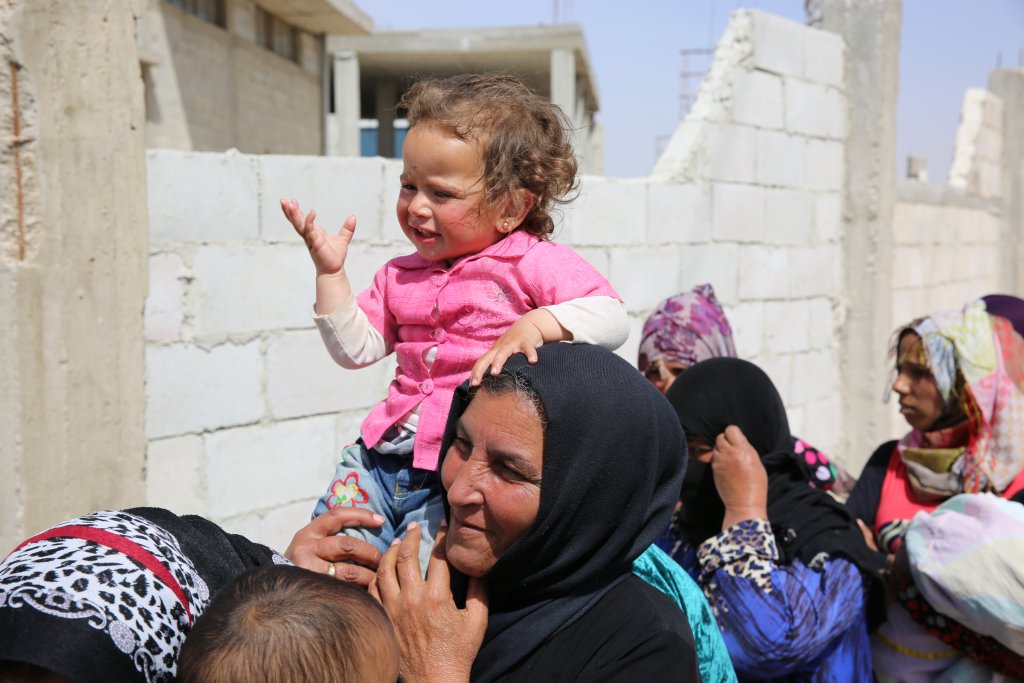
This week, the conflict in Syria will have been ongoing for a decade. In that time, 500,000 people have been killed, millions of people have been forced to leave their homes including to other countries, and countless lives have been forever changed. 11 million people are in need of humanitarian aid in Syria alone.
In times of crisis, women and girls bear the greatest hardship. They are the first to give up their education or work to care for elderly, sick, or young family members. They are the first to go hungry when food is in short supply. And, they are at the greatest risk of gender-based violence, including child marriage.
UNFPA’s office in Syria has worked tirelessly over the last 10 years to provide women and girls the sexual and reproductive health care they need to live safe and healthy lives. Here are some of the challenges of working in Syria and what UNFPA is doing to overcome them:
Rebuilding health facilities and saving Mariam
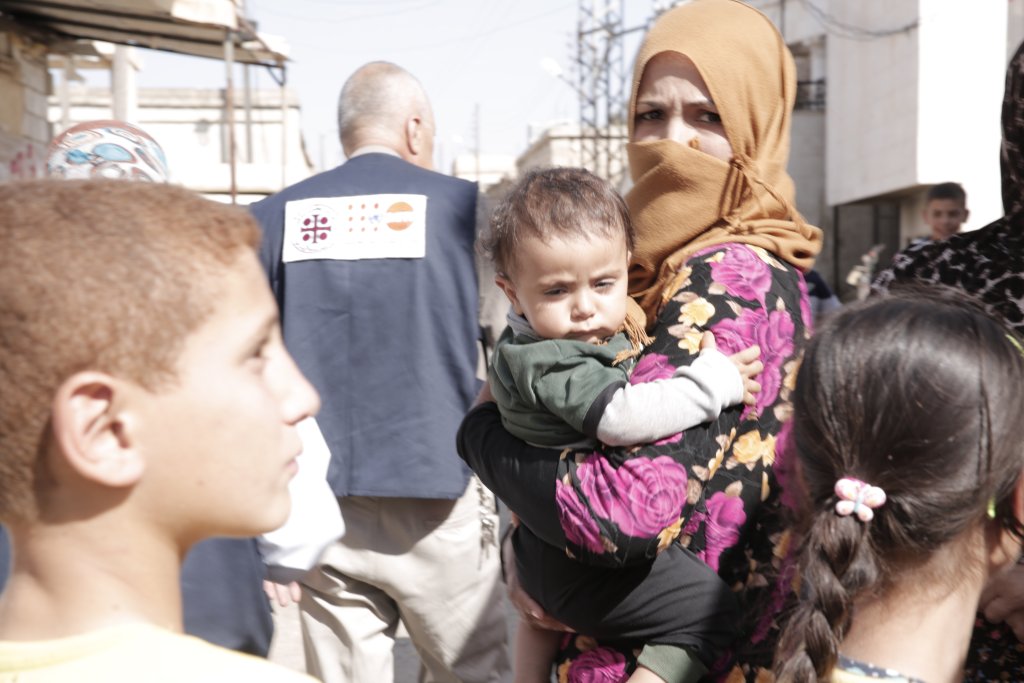
Even before COVID-19, hundreds of women and girls died from pregnancy and childbirth complications in Syria everyday. Kinda Katranji, a Communications Expert at UNFPA’s Syria office in Damascus says, “Now, as health systems and protection services are stressed by the pandemic, conditions for women are poised to worsen.” UNFPA is continuing to provide care in Syria, in part by upgrading and renovating health clinics and maternal health wards in hospitals. This is critical as half of all health facilities have been damaged or destroyed in the conflict.
UNFPA is also equipping facilities with lifesaving supplies. For example, last February was brutally cold in Syria and one family protection center didn’t have food, fuel, or electricity. Without heat, babies were freezing to death. Mariam, one such baby, began to turn blue and stopped eating because she was so cold. UNFPA quickly intervened and directed other UN agencies to do the same. The entire center watched as the heat turned on and Mariam warmed up. Soon, she was crying, asking for food. Today, Mariam is healthy and growing larger every day. And, UNFPA continues to work closely with 20 local organizations to understand community needs and how they can help.
Greater access to care for pregnant women and their families
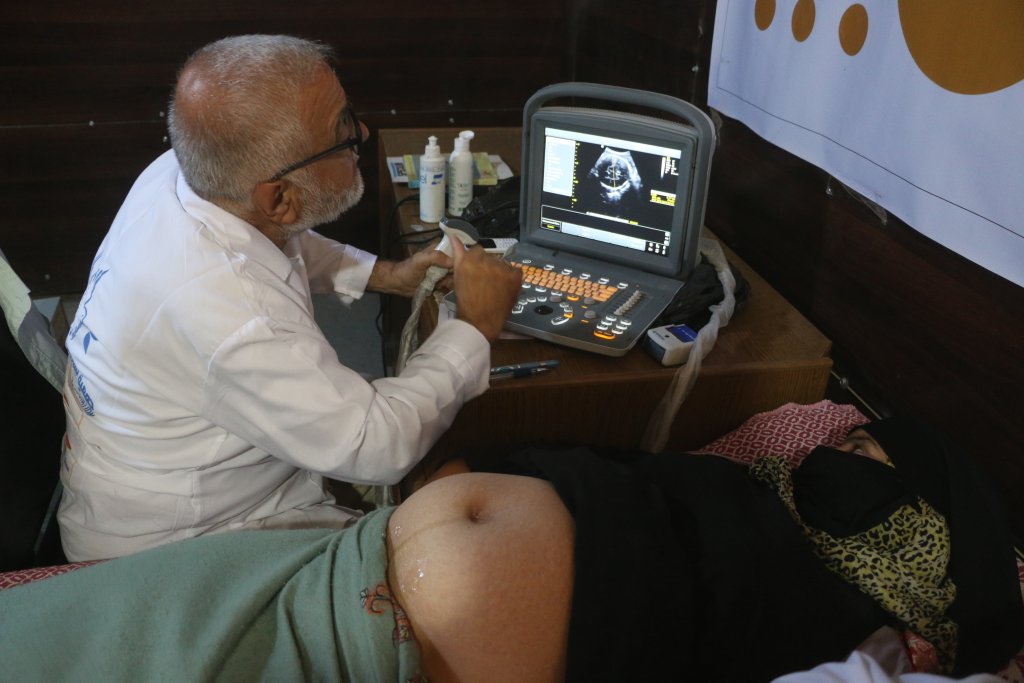
Throughout the COVID-19 pandemic, women have opted to give birth at home to avoid becoming infected at a health facility. This can be dangerous when pregnancy and childbirth complications arise. But women who do want to give birth in a clinic, their destruction makes it difficult to access care. Further complicating this situation is the lack of health care workers. Over 70% of health care providers have fled the country. To overcome this, Katranji says, “UNFPA is exerting huge efforts to train [health care workers] and enhance the quality of services provided to accommodate for the shortage.”
Midwives who are currently working in Syria have reported a dramatic rise in early deliveries, miscarriages, and low-weight births. This illustrates the tremendous stress Syrian women are under every day. Midwives have also said that pregnant women are increasingly asking for Caesarean section deliveries. This is so they don’t have to go into labor while migrating or in an area without medical care.
In 2020, UNFPA also began a successful cash and voucher assistance program for pregnant and nursing women. Mothers-to-be could access the food and medicines they needed for healthy pregnancies. Families could also purchase nutritious foods. Khadija told UNFPA that she was able to purchase laundry detergent through the voucher system so her 1-month-old daughter could have clean clothes to wear. UNFPA hopes to reach 70,000 families like Khadija’s and has plans to further scale up the program in 2021.
Violence against women and girls is “routine”
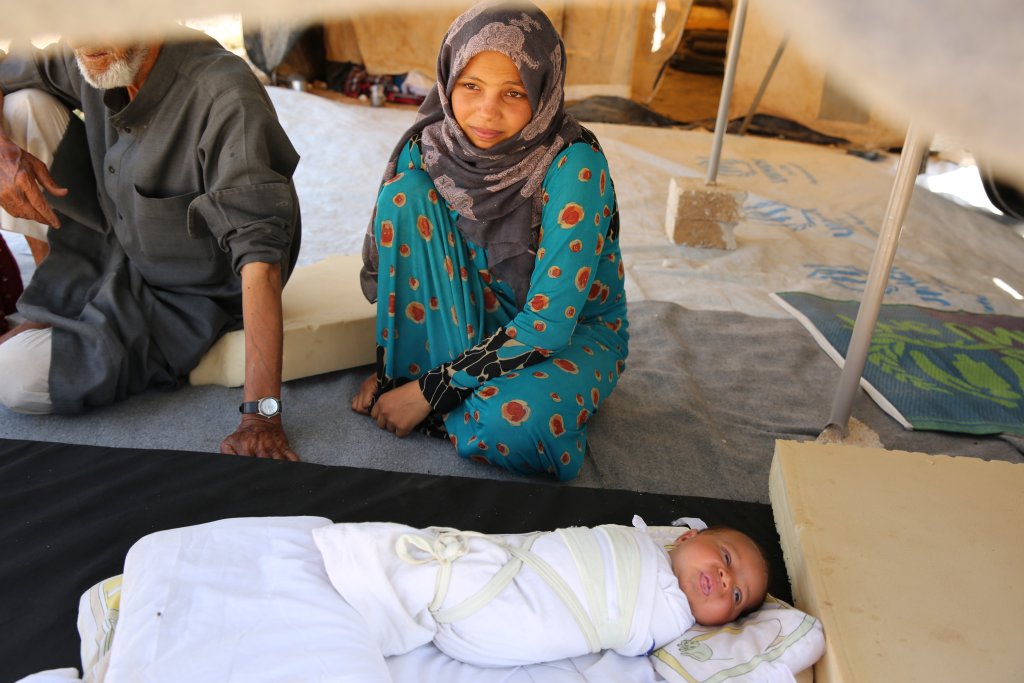
Women and girls have faced their own sort of lockdown in Syria long before COVID-19 began. Nada, a 14-year-old girl in Syria, describes how her family controlled her behavior, “It began with the women in my family asking me where I go and who I talk to, telling me not to play with my friends outside.” Now, Nada and many women and girls like her, have said that they cannot go outside or interact with their friends because of the fear of violence and intimidation. This has profound implications for women and girls’ mental health. Katranji says that gender-based violence is routine and that a majority of women and girls suffer from PTSD and other mental health conditions because of the conflict and the lack of protection.
During times of crisis, violence against women and girls increases, including physical, sexual, and emotional violence. In Syria, more girls are at risk of child marriage. Increasingly, girls are also experiencing “serial marriages,” which is when a family marries a girl briefly to justify her engagement in transactional sex. This is an incredibly harmful economic coping mechanism for families. Girls in serial marriages are at risk for unintended pregnancy, abuse, and sexually transmitted infections.
New programs to reach survivors
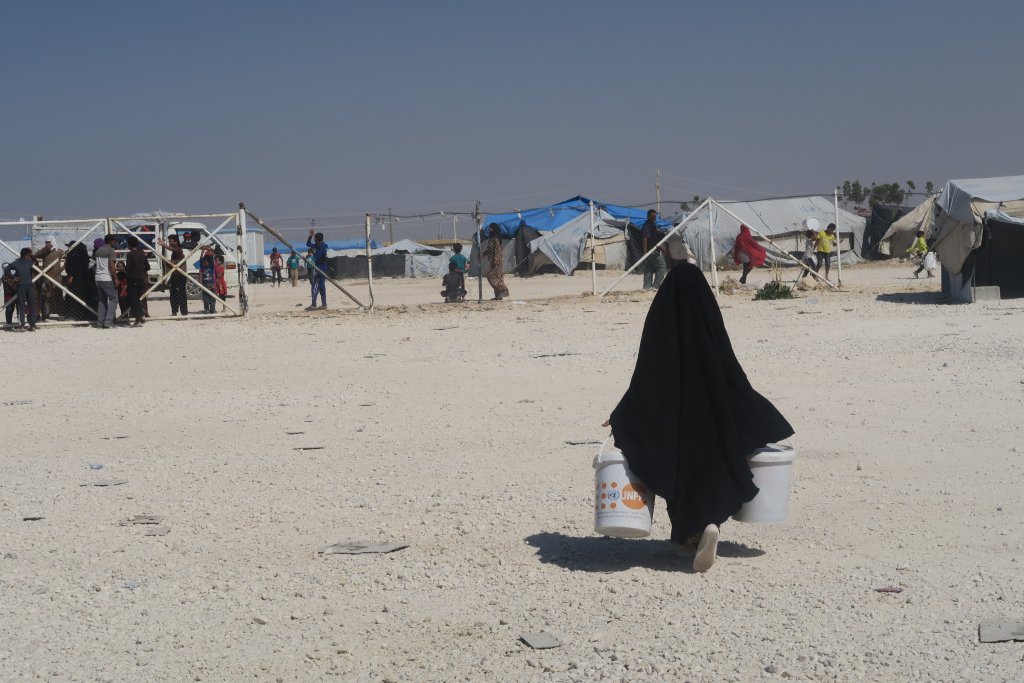
UNFPA is working to improve resources for survivors of gender-based violence by providing safe spaces and psychosocial counseling for women and girls and by distributing dignity kits. The kits contain personal hygiene essentials and information on how to access sexual and reproductive health care even while migrating. UNFPA also operates skills training programs, so women and girls can earn an income and become economically independent. This is especially critical for survivors of violence who wish to end their relationship with their abuser.
The agency is also piloting two programs. The first will engage university students in Syria with sexual and reproductive health research that supports UNFPA’s programs. The students will receive incentives to help cover their costs. The second program will introduce international health care professionals to Syrian shelters in the hopes of expanding support for survivors of violence.
UNFPA staff say the rewards are great, but the gap is growing
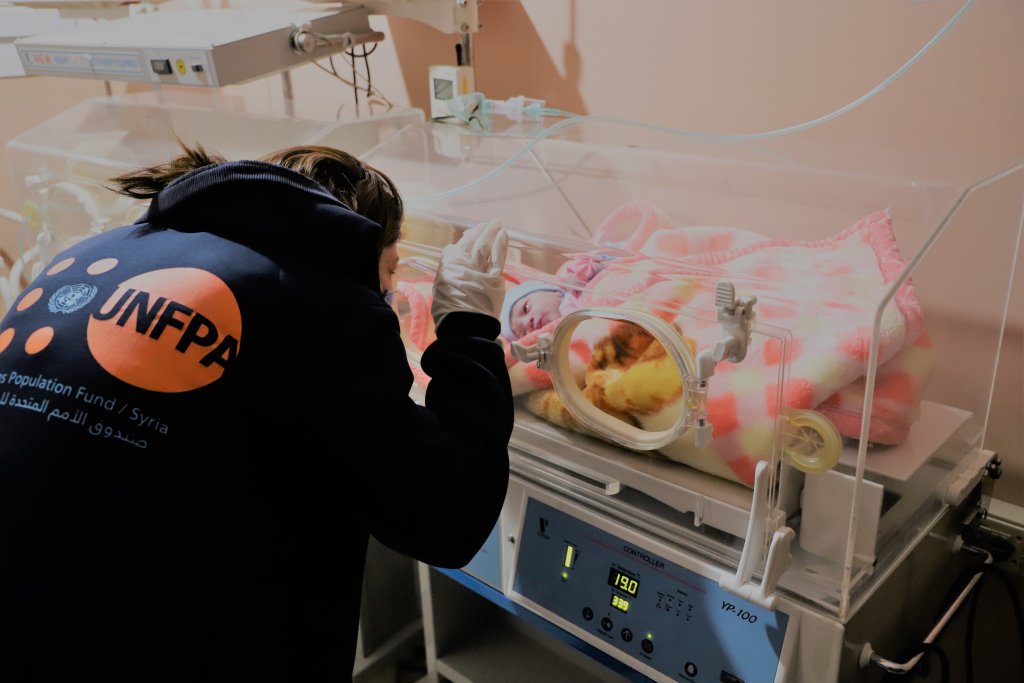
UNFPA has been operating in Syria since 1971 and has built considerable trust with donor, the government, and the Syrian people in that time. However, the prolonged conflict, worsening economic situation, and recurring spikes of COVID-19 have caused major setbacks in UNFPA’s work to improve access to sexual and reproductive health care. In particular, the setbacks around girls’ ability to live safe and healthy lives are immense.
Today, Katranji says that there is a growing resource gap due to rapidly increasing needs of all Syrians, including those who have migrated to other countries. This year, UNFPA appealed for over $80 million in funding for Syria. In 2020, UNFPA appealed for less than $60 million. Despite the growing need and the dwindling resources, Katranji says that UNFPA staff are rewarded hundreds of times every day when women and girls are empowered to take control of their sexual and reproductive health.
“When a woman generates its family’s bread, we are rewarded. When a girl is saved from the early marriage, we are rewarded. When women are choosing when they want to become pregnant, we are rewarded. When a child or a woman is protected from sexual violence, we are rewarded. Every day, we are rewarded hundreds of times.”
Kinda Katranji, UNFPA Communications Officer in Syria
You too can join in UNFPA’s efforts to provide lifesaving sexual and reproductive health care to Syrians and women and girls in humanitarian settings around the world. Donate today.
This article would not have been possible without the incredible support of Kinda Katranji at UNFPA’s office in Syria. We thank her for endless work improving the lives of Syrians.
-Dana Kirkegaard